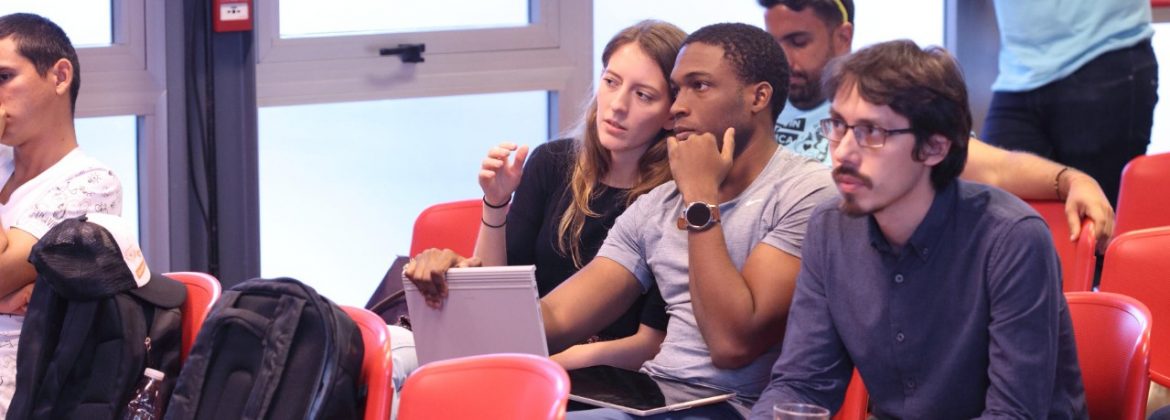The world is going through a major demographic shift. Many countries are experiencing increasing life expectancy and declining birth rates, forcing them to reassess their long-term approach to healthcare. Today, it is clear that with an aging population, there will be a rise in non-communicable diseases, particularly neurological disorders.
The projected health needs of the global population for the next decades have strengthened the interest in neuroscience research. Neuroscience innovation is no longer exclusively developed by academic institutions though. Venture capital firms like Google Ventures and pharmaceutical corporations such as Pfizer and Johnson & Johnson are investing heavily into what has become a $30 billion industry.
However, while most new funded startups and applications come from North American and European ecosystems, developing countries still don’t have much access to these resources. Allegori, a pioneering Trinidad and Tobago-based company providing new insights of the inner workings of the brain, is changing that.
The power of the human mind
Kheston Walkings is the founder, CEO and Chief Neuroinnovation Officer of Allegori. With a background in medical neuroscience, Walkings created the business after a personal experience with depression. “Depression inspired me to create Allegori. I had a startup that didn’t go the way I wanted it to and I went for therapy (…) after that I thought that there should be a way to apply neuroscience and psychology. That is how we started up. My work is to practicalize the research and develop products and services to make applied neuroscience useful for everyday man”, says Kheston.
This startup is overcoming the social stigma around mental health in Trinidad and Tobago while developing an innovative business model. For Kheston, it is all about empowering people by helping them reset their brains and shape behavior. “We show the power of the human mind. We train people and facilitate their progress but they are the ones making their brains do the things they need to do in order to achieve certain goals.”
Allegori has built different practices to serve a broader range of the population. From helping people to manage intense pain, sleep better, stay focused during work hours or school, to treating anxiety and PTSD. “We developed services for individuals who have anxiety and depression and we helped students that have issues focusing in school. We really want to get into the corporate space as well, because we know that we can add value for them. By average we boost our clients’ output by around 3 times”, says Kheston.
The company is also working with athletes to enhance performance. “We’ve trained a few Olympian athletes. We’ve also trained junior athletes and we saw significant improvements with their performance on and off the field.”
The use of neuroscience in sports is now a common practice in professional leagues such as Major League Baseball, the National Basketball Association and the National Football League. However, the lack of resources in most developing countries is limiting the implementation of new neuroscience-driven techniques in sports. Allegori is creating the opportunity to use neuroscience in an affordable way to change the limits of performance for professional athletes across the Global South.
Scaling up the business
The system employed by Allegori is producing substantial changes in people’s lives. From a surgeon with anxiety and PTSD that was able to stop constant panic attacks in only six sessions, to breakthroughs in pain management and the learning capabilities of patients with autism. But now the company faces the question of how to scale up and maintain momentum.
While they’re developing services that can be useful to people everywhere, exploring new alternatives to deploy and deliver their products is essential to facilitate expansion. “We are transitioning into providing our services entirely remotely”, says Kheston. This digital transformation could provide access to new markets and funding opportunities.
Allegori’s methodology is also integrating data analytics to improve its services. Using data on neural activity has become a promising area of study for its potential to help understand complementary details about the human brain. Kheston notes, “We record data for each one of our clients. We’ve collected over seven hundred million points of data. We use those insights to make the sessions better and more useful for our clients. On one hand is data from just one individual at a time but it is a substantial amount of data. And it is something empirical, you can’t cheat the brain activity, you can’t lie.”
With an enhanced product, Allegori is positioning an innovative value proposition. As the health insurance market shifts towards value-based payments to replace a fee-for-service model, Allegori could play a key role in this transition. Integrating applied neuroscience with primary care as a default practice could reduce ER visits and other care while lowering overall medical cost. “The good health of the customer increases the likelihood of collecting fully under premium,” says Kheston. “I don’t mean to turn someone into a monetary unit but there is value in preserving and fortifying the mind.”
Although Allegori faces the traditional challenges of startups trying to live up to their potential, including the need to inject capital and develop partnerships, the many potential applications of these products and its prospects to revolutionize healthcare goes beyond Trinidad and Tobago. A more actionable and empowering way to regulate behavior and mindsets creates opportunity to engage new sectors of the population. Making those techniques accessible could bring incredible benefits for many countries in Latin America and the broader Global South. www.allegori.org
*Article submitted by Bryan Ch. Campbell Romero, a freelance writer and independent analyst covering public policy and political risk in Latin American & Caribbean. Originally from Cuba, Bryan holds a Bachelor’s degree in Philosophy (Licenciatura en Filosofía) from the University of Havana. He tweets at @bchCampbell



 This information will never be shared to third parties
This information will never be shared to third parties